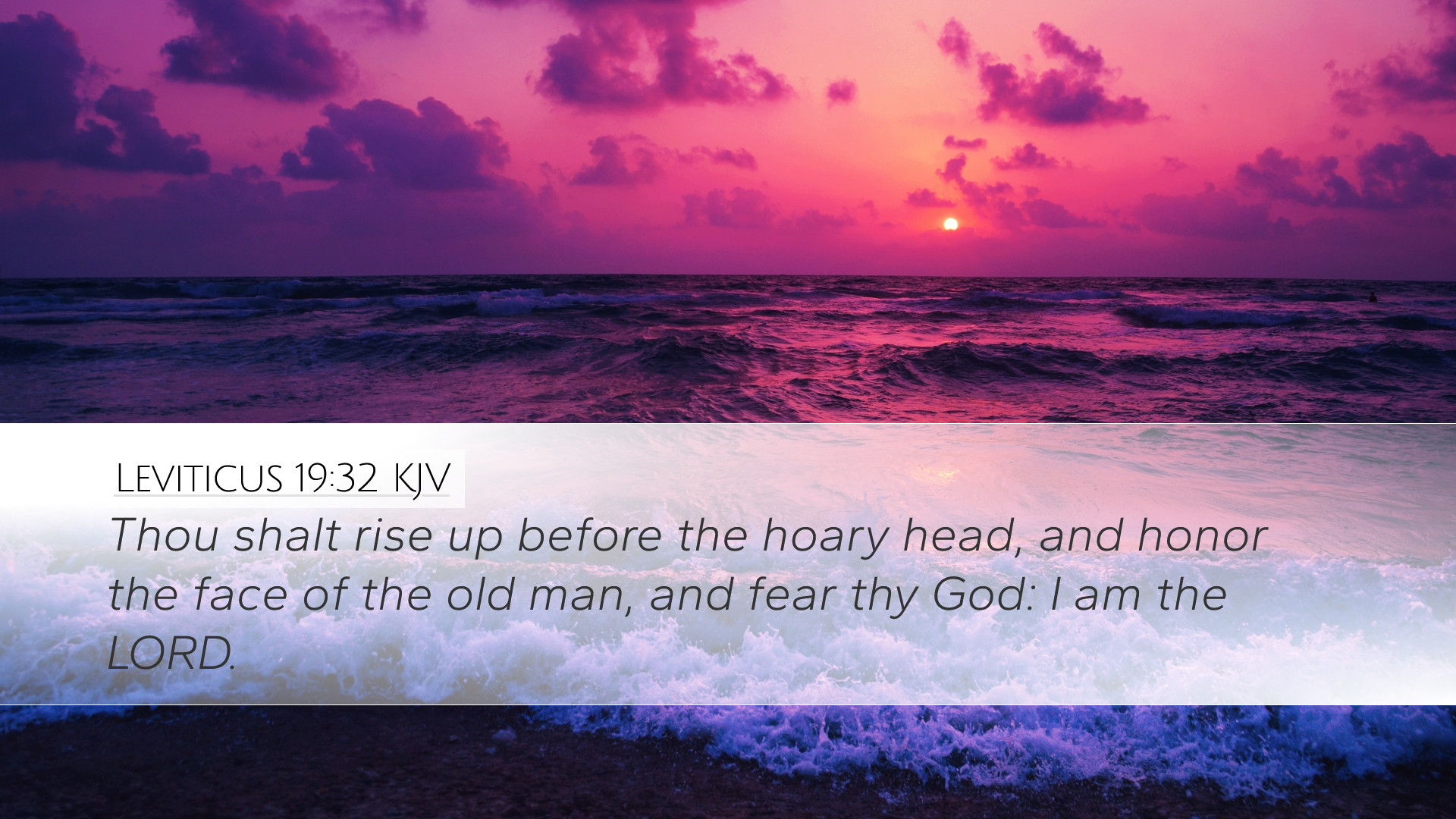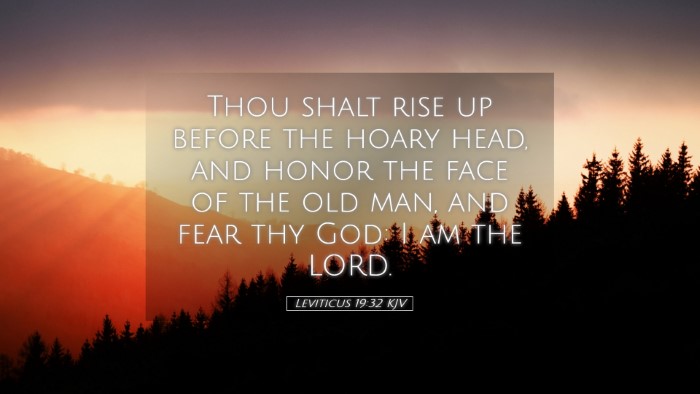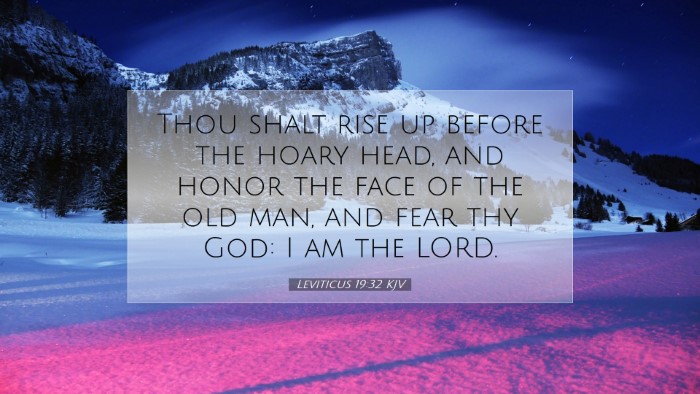Commentary on Leviticus 19:32
Leviticus 19:32 states, "You shall rise before the gray-headed and honor the presence of an old man, and fear your God: I am the Lord." This command reflects the deep respect and honor that is to be afforded to the elderly, an essential principle rooted in the character of God. A review of historical and theological insights from public domain commentaries provides a rich understanding of its implications for various contexts.
Overview of the Verse
This verse is part of a larger passage that outlines various laws intended to guide the conduct of the people of Israel. It emphasizes respect for elders, highlighting the dignity bestowed upon the aged by virtue of their life experiences and proximity to divine guidance.
Theological Implications
From the perspectives of Matthew Henry, Albert Barnes, and Adam Clarke, several key theological principles emerge:
- Respect for Age: The command to rise before the gray-headed suggests that societal respect is tied to age and wisdom. Matthew Henry emphasizes that gray hairs signify the completion of a life rich in experience, thus deserving of honor.
- Divine Authority: The phrase "fear your God" connects the respect for the elderly with the fear of God, indicating that honoring older generations is an aspect of honoring God Himself. Albert Barnes points out that this command demonstrates how earthly relationships are reflections of theological truths.
- Community Dynamics: Adam Clarke notes that such laws promote strong, respectful community dynamics where the wisdom of the aged is valued. This fosters a culture of learning and growth, vital for the survival and health of a community.
Historical Context
In the ancient Near Eastern context, aging was associated with wisdom, and societies were heavily reliant on the guidance of their elders. These cultural practices found echoes in various biblical texts, emphasizing the importance of intergenerational relationships.
Exegesis of Key Terms
To fully appreciate the depth of this verse, it is essential to look at specific words used:
- "Rise before the gray-headed": This action indicates readiness to show respect, similar to standing for authority figures. It denotes an acknowledgement of the status that comes with age.
- "Honor the presence of an old man": This suggests not merely a physical acknowledgment but also an attitudinal respect where the voice and presence of the elderly are cherished and valued.
- "Fear your God: I am the Lord": This reminder of divine authority reinforces that the moral obligation in human relations has implications in the divine sphere.
Practical Applications
For pastors, students, theologians, and Bible scholars, there are several practical applications to consider:
- Encouraging Respect within Congregations: Church leaders can emphasize the importance of honoring the elderly within church communities, creating programs that facilitate mentorship and wisdom-sharing.
- Teaching on Intergenerational Relationships: Educational settings could utilize this verse to cultivate awareness about the value of diversity across generations, ensuring that respect and dignity are practiced in every age group.
- Fostering a Culture of Learning: Engaging older members for their life experiences can enrich the learning opportunities for younger individuals, enabling a more profound comprehension of faith and practices.
Conclusion
Leviticus 19:32 serves as a profound reminder of the honor due to the elderly and the associated call to respect those who have paved the paths of wisdom and faith. In a society increasingly characterized by a rapid pace of life and often a disconnect from past generations, this verse beckons a return to valuing those who guide, teach, and reflect the faith that sustains the community.


